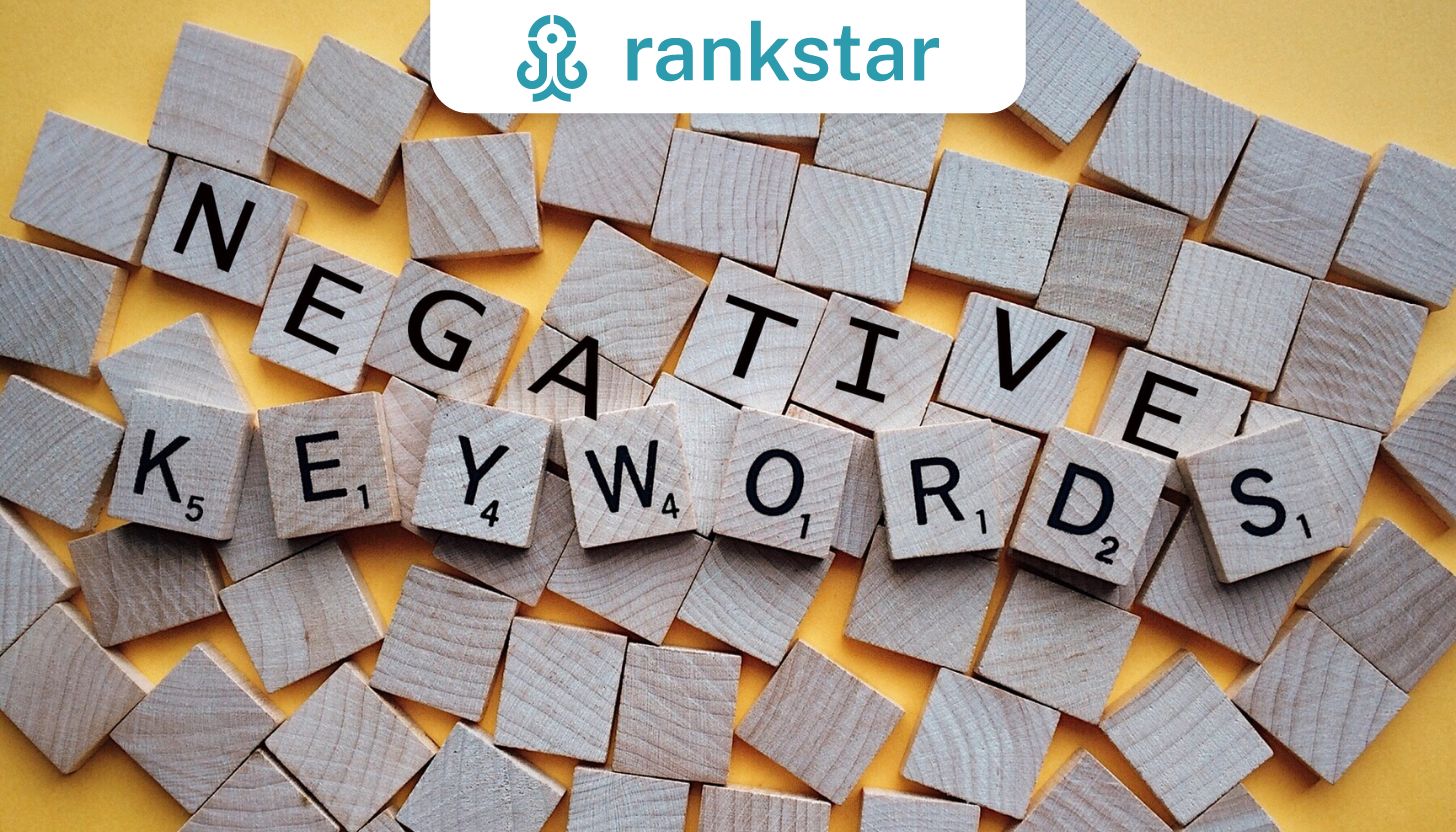You’ve set your targets, defined your goals, and launched your ads, but you’re not seeing the success you anticipated. You might be overlooking the power of negative keywords—a crucial component that can make or break your advertising efforts.
By identifying and applying the right negative keywords, you prevent your ads from showing up in unrelated searches, ensuring you’re not wasting clicks on uninterested users. This targeted approach not only conserves your budget but also elevates your ad relevance and quality score.
As you dive into the nuanced world of negative keywords, you’ll learn to finetune your campaigns, enhance your audience targeting, and dramatically improve your return on investment.
Let’s get started on transforming your advertising strategy into a well-oiled, cost-effective machine.
Key Takeaways
- Understanding negative keywords is crucial for improving ad relevance, decreasing CPC, and boosting CTR.
- Thorough analysis of search term reports and consumer behavior patterns is essential to identify irrelevant queries.
- Strategic use of negative keywords at different levels (campaign, ad group) can maximize campaign efficiency and improve key performance indicators.
- Hierarchical implementation of negative keywords, from account level to ad group level, helps filter out irrelevant traffic and reduce wasted spend.
Dominate Google Search with Rankstar’s Precision SEO
→ Emerge as a leading force in Google’s search landscape with Rankstar’s expert SEO and Autocomplete mastery!
We specialize in catapulting your brand to the top of Google’s rankings, ensuring your website becomes the instinctive choice for users. With our strategic approach, your presence will not only be felt—it will be actively sought after by those who matter most: your customers. Achieve prominence in every search and type-ahead suggestion. Visit RankStar and partner with us to realize your vision of digital dominance. Command the search frontier.
Consider other services offered by Rankstar:
-Keyword Clustering
-Content Optimization
-Content Writing
-Local SEO

Understanding Negative Keywords
Negative keywords are filters that prevent your ads from appearing in response to certain search queries, ensuring you’re not wasting ad spend on irrelevant clicks. By incorporating them into your pay-per-click (PPC) strategy, you’re leveraging critical data to refine your targeting.
You’ll notice that when irrelevant search terms don’t trigger your ads, your cost-per-click (CPC) decreases and your click-through rate (CTR) improves. This strategic move isn’t just about excluding terms; it’s about optimizing your campaign’s performance metrics.
Thorough analysis of search terms reports and consumer behavior patterns is essential in identifying the right negative keywords. You’re not only saving money; you’re also enhancing the relevance of your ads, which Google rewards with a higher quality score, further reducing costs and boosting ad placement.
Maximizing Campaign Efficiency
By implementing negative keywords strategically, you’ll streamline your campaigns, ensuring that each dollar spent is targeting potential customers who are more likely to convert.
To maximize campaign efficiency:
- Analyze Search Term Reports: Regularly review these reports to identify irrelevant queries triggering your ads. This data-driven approach will reveal trends and patterns you can use to refine your negative keyword list.
- Monitor Campaign Metrics: Keep a close eye on your Click-Through Rate (CTR) and Conversion Rate. A strategic use of negative keywords should lead to improvements in these key performance indicators.
- Apply Negative Keywords at Different Levels: Use a hierarchical approach—apply broader negatives at the campaign level and more specific ones at the ad group level to fine-tune your targeting.
Types of Negative Matches
Understanding the different types of negative matches—broad, phrase, and exact—is crucial as you refine your ad campaign’s targeting precision.
Negative Broad Match filters out queries containing all your negative keywords in any order. It’s the most inclusive, reducing irrelevant traffic, yet requires careful analysis to avoid overblocking potential leads.
Negative Phrase Match is more targeted, excluding searches with the exact negative phrase in the sequence you specify. This balance between reach and relevance enhances strategic focus.
Negative Exact Match is the most restrictive, blocking queries that match the negative keyword exactly, ensuring you’re not spending on traffic with no conversion potential.
Data-driven decision-making is vital in selecting the appropriate match type, based on search query reports and campaign performance metrics.
Data-driven decision-making is vital in selecting the appropriate match type, based on search query reports and campaign performance metrics.
Hierarchical Implementation
You can streamline your ad campaign’s efficiency by implementing negative keywords at various hierarchical levels, from the broad account level down to specific ad groups. This structured approach enables you to filter out irrelevant traffic and reduce wasted spend with precision. By analyzing data, you can strategically place negative keywords where they’ll have the most impact.
Consider these hierarchical levels:
- Account Level: Apply broad negative keywords that are irrelevant across all campaigns.
- Campaign Level: Use more specific negative keywords that don’t align with the campaign’s goals.
- Ad Group Level: Insert highly targeted negative keywords to refine the audience for each ad group.
This layered strategy ensures your ads are displayed to the most relevant audience, optimizing your budget and enhancing campaign performance.
Sourcing and Adding Keywords
Identifying the right negative keywords is an essential component of refining your ad strategy to ensure your budget is directed toward the most relevant audiences. You’ll want to approach this analytically, sifting through search term reports and leveraging tools that identify irrelevant keywords. Remember, it’s not just about adding words; it’s about understanding user intent and patterns.
Here’s a data-driven approach to sourcing and adding negative keywords:
| Method | Description |
|---|---|
| Search Term Reports | Analyze queries triggering your ads to find mismatches |
| Competitor Analysis | Identify irrelevant terms by studying competitors’ ads |
Strategically incorporate these findings into your campaigns, ensuring you’re excluding terms that are unlikely to convert, thus optimizing your ad spend and improving campaign performance.
Best Practices for Optimization
Keyword optimization is an important aspect of ensuring that your ads reach the right audience, which in turn helps save time and money. To effectively hone your keyword strategy, it is crucial to focus on data analysis. This involves analyzing search term reports to identify which keywords are not converting and adding them as negative keywords. Regularly updating your lists to reflect changing search patterns and market trends is also essential.
Consider the following optimization practices:
- Analyze Search Terms: Take a close look at non-converting terms and patterns, and add them as negative keywords.
- Refine Lists Regularly: Stay aligned with current market trends and user behavior by consistently updating your negative keyword lists.
- Use Match Types Wisely: Choose the appropriate match type for each negative keyword to effectively control the reach of your ads.
Frequently Asked Questions
Can Negative Keywords Affect the Display and Reach of My Ads on the Google Display Network?
Yes, negative keywords can limit your ad’s display and reach on the Google Display Network by filtering out traffic unrelated to your desired audience, thereby sharpening your campaign’s focus and efficacy.
How Often Should I Review and Update My List of Negative Keywords for Optimal Ad Performance?
You should regularly review and update your negative keyword list, ideally monthly, to ensure your ads maintain peak performance, based on data analysis and changes in search patterns or campaign results.
Are There Any Limitations on the Number of Negative Keywords I Can Add to My Google Ads Account, Campaigns, or Ad Groups?
You can add up to 10,000 negative keywords per campaign or 20,000 at the account level, optimizing your ads’ efficiency and ensuring you’re not wasting budget on irrelevant search queries.
How Do Negative Keywords Interact With Other Keyword Match Types in the Same Ad Group or Campaign?
Negative keywords filter out unwanted traffic, ensuring your other keywords target the right audience. They don’t compete but complement, refining your strategy for higher relevancy and improved campaign performance.
Can Using Too Many Negative Keywords Have a Negative Impact on My Ad Campaign’s Potential Audience Reach and Lead Generation?
Yes, using too many negative keywords can limit your ad campaign’s reach and hinder lead generation by excluding potential customers who might use variations of those terms you’ve inadvertently blocked.
Conclusion
You’ve now harnessed negative keywords to sharpen your PPC campaigns. Remember, it’s a continuous process—regularly analyze search term reports, prune irrelevant queries, and refine your lists.
By strategically implementing negative matches at different levels, you’re ensuring maximum efficiency and a robust ROI.
Stay data-focused, adapt swiftly, and watch your ad relevance—and profits—soar.
Keep optimizing, and you’ll turn those saved pennies into substantial revenue.
The power of negatives is clear: they’re your budget’s silent protectors.


















